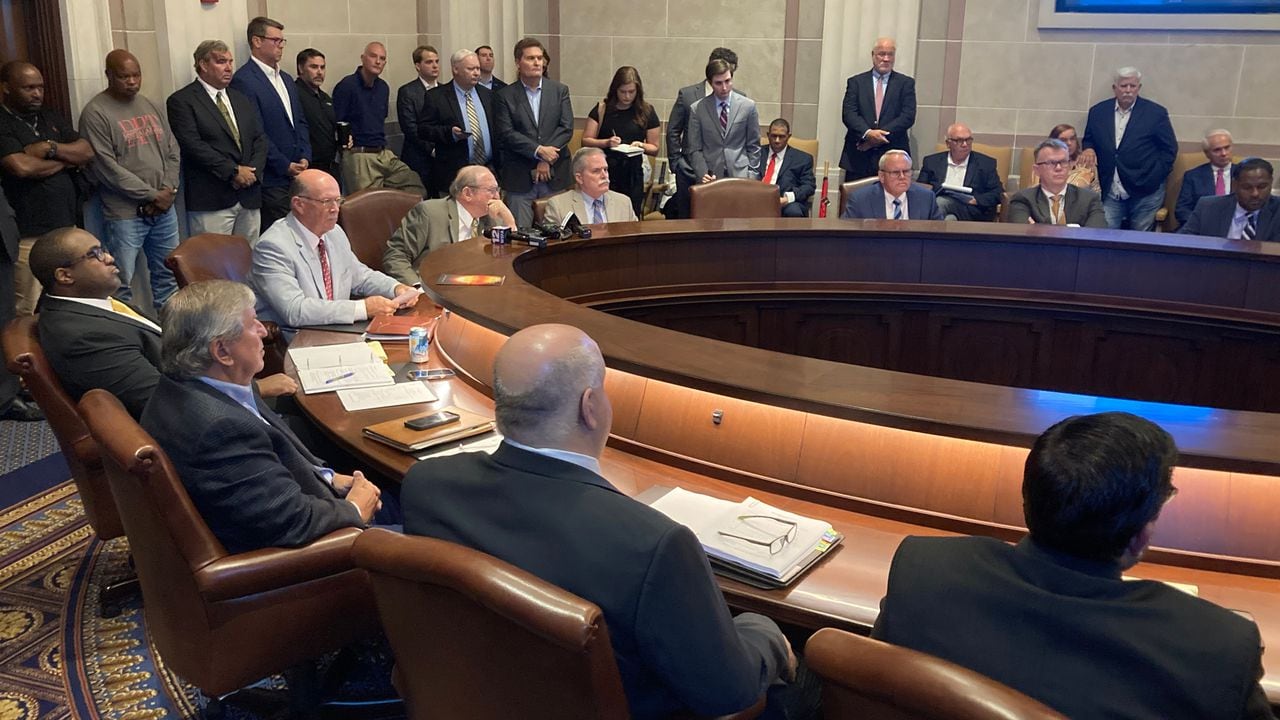20 Alabama companies awarded licenses for medical marijuana
The Alabama Medical Cannabis Commission awarded licenses on Friday to 20 companies to cultivate, process, transport, test, and sell medical marijuana products, a key step toward starting the new industry in Alabama.
Patients who receive a recommendation from a doctor will be able to buy the products to treat chronic pain and a wide range of conditions and symptoms.
Friday was the third time for the AMCC to award licenses. Awards made in June and August were rescinded after mistakes by the commission and delays caused by lawsuits.
Friday’s awards come after a judge approved a settlement the AMCC reached in mediation with some of the companies that have sued the commission.
A key part of the settlement was that the AMCC agreed not to consider scores from third-party evaluators that had previously been used to rank the applicants. The scores have been controversial and were challenged in court.
Companies seeking licenses made presentations to the AMCC this week under a new procedure adopted in October.
On Friday, the AMCC voted on the license awards in an open meeting at the Alabama State House. Several commissioners participated remotely. Ten or 11 of the 13 commissioners voted on most of the decisions.
The open meeting Friday was in contrast to the license awards in June and August, when most of those two meetings took place behind closed doors. The closed meetings had sparked some of the litigation against the AMCC.
Before the vote on Friday, the commissioners filled out sheets to rank the applicants in each category. The averages of those rankings were used to to determine the order in which the applicants would be considered. The commission then accepted nominations for each licensee, category-by-category. For those that received a nomination and a second, a roll call vote followed.
The companies chosen:
Cultivators: CRC of Alabama; Greenway Botanicals; Gulf Shore Remedies; Native Black Cultivation; Creek Leaf Wellness; Twisted Herb Cultivation; and I AM FARMS.
There were 12 cultivator license applicants.
Processors: Organic Harvest Lab; Coosa Medical Manufacturing; 1819 Labs; and Jasper Development Group.
There were 11 processor applicants Four is the maximum number of licenses allowed under the law.
Dispensaries: CCS of Alabama; GP6 Wellness; Capitol Medical; and RJK Holdings.
There were 18 dispensary license applicants. Four is the maximum number of licenses allowed.
Secure transporters: Alabama Secure Transport; Tyler Van Lines; Pick Up My Things; and International Communication.
There were originally nine secure transporter applicants, but two had been eliminated before Friday. Three others were denied licenses Friday. There is no limit on the number of transporter licenses.
Testing labs: Certus Laboratories.
Certus was the only testing lab applicant considered on Friday. There was originally one other applicant but it was eliminated before Friday.
Dr. William Saliski, Jr., a pulmonologist and commission member, said one lab would not be enough for the entire state.
AMCC Chairman Rex Vaughn agreed, saying the state needs a second lab.
“We need another lab at least for the purpose of being objective in testing the products that are out there and also to avoid the potential bottleneck of all the product that comes into one laboratory,” Vaughn said.
“That will be on our agenda sooner than later,” Vaughn said.
The presentations from applicants this week were part of the AMCC’s new approach to making the licensing decisions. Several commissioners praised individual applicants for their presentations before Friday’s votes.
Vaughn said it was a long week of watching the presentations but worth the time.
“It’s worked well,” Vaughn said. “The presenters brought things to the forefront that maybe we didn’t see otherwise, that you cannot really see on a paper application.”
The AMCCC distinguishes between awarding licenses and issuing licenses. The companies selected Friday are scheduled to be issued licenses on Dec. 29. Before that, Vaughn said the AMCC would do investigations that include on-site inspections.
“They’ll go through the investigative process to make sure that company is what we think they are,” Vaughn said.
Companies awarded licenses have until Dec. 15 to pay their licensing fees. Companies that were denied licenses on Friday have until Dec. 15 to request an investigative hearing before the AMCC.
The AMCC is scheduled to award the final category of licenses, integrated licenses, on Dec. 12. Integrated licensees will be able to cultivate, process, transport, and dispense medical marijuana products. The integrated license category has been the most contentious and sparked most of the lawsuits. There are 38 applicants for integrated licenses, but the AMCC can award a maximum of five under the law.
The Legislature approved medical marijuana in 2021 and created the AMCC to oversee seed-to-sale regulation of the industry, which will be fully intrastate.
Products can include gummies, tablets, capsules, tinctures, patches, oils, and other forms allowed by the legislation.
Patients who receive a recommendation from a certified doctor and receive a medical cannabis card from the AMCC will be able to buy the products at licensed dispensaries.
The products can be used to treat a wide range of conditions, including chronic pain, weight loss and nausea from cancer, depression, panic disorder, epilepsy, muscle spasms caused by disease or spinal cord injuries, PTSD, and others.
